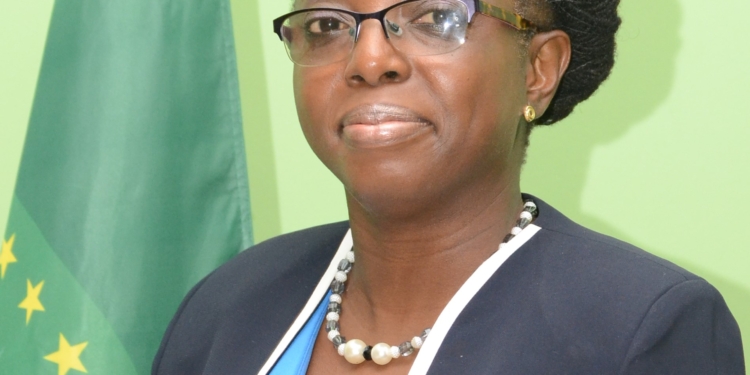The Special Rapporteur on Freedom of Expression and Access to Information in Africa,
Commissioner Jamesina Essie L. King, has called on African Governments to take all measures to guarantee and protect the right to freedom of expression and access to information by ensuring access to the Internet and social media services, particularly during the COVID-19 pandemic.
Presenting her first inter session activity report at the ongoing 67th Ordinary Session of the African Commission on Human and Peoples’ Rights, Commissioner King noted that despite the obligation imposed by Principle 37 of the Declaration of Principles on Freedom of Expression and Access to Information in Africa to the effect that “States shall facilitate the rights to freedom of expression and access to information online and the means necessary to exercise these rights,” countries were increasingly resorting to shutting down, or curtailing, access to the internet and social media platforms, for various reasons including quelling unrest.
According to Commissioner King, who was appointed Freedom of Expression Special Rapporteur at the 66th Ordinary Session of the Commission for an initial period of two years, period beginning from July 1, 2020, Principle 10 of the Declaration describes freedom of expression as “a fundamental and inalienable human right and an indispensable component of democracy.”
She identified access to information as a challenge despite the fact that it is enshrined in Article 9(1) of the African Charter; it is a cross-cutting and facilitative right; the Commission has further elaborated on the scope of the right in the Model law on Access to Information for Africa as well as in the Guidelines on Access to Information and Elections in Africa; and the Declaration of Principles on Freedom of Expression and Access to Information in Africa.
Commissioner King noted that to date, only Angola, Burkina Faso, Cote d’Ivoire, Ethiopia, Ghana, Kenya, Liberia, Malawi, Morocco, Mozambique, Niger, Nigeria. Rwanda, Seychelles, Sierra Leone, South Africa, South Sudan, Sudan, Tanzania, Togo, Tunisia, Uganda, and Zimbabwe have enacted specific national access to information laws.
On the other hand, she said, “a large number of African countries have yet not adopted national legislation on the protection of this important right.” She called on them to expedite the adoption of legislation on the right to access information, in accordance with international standards and as elaborated in the Commission’s Model Law.
Commissioner King also advised African Governments to ensure the effective implementation of access to information laws, including through adopting independent oversight mechanisms which “monitor, promote and protect the right of access to information and resolve disputes on access to information,” as stipulated in Principle 34 of the Declaration.
She also urged State Parties to the African Charter on Human and Peoples’ Rights to ensure the protection of freedom of expression by revising laws which impede the right.

